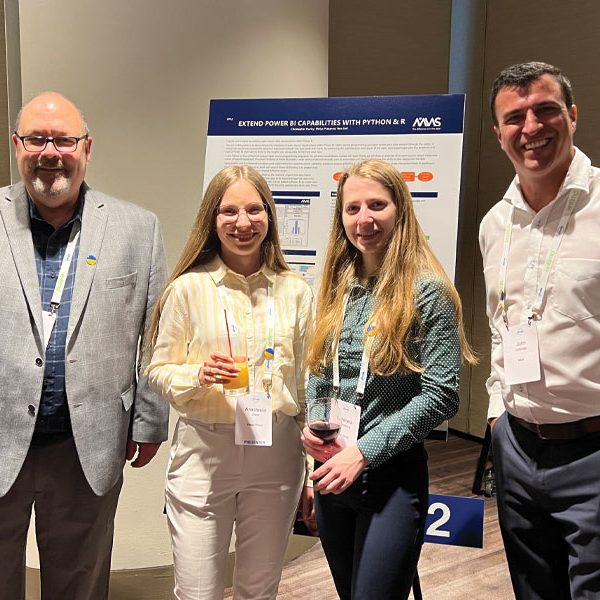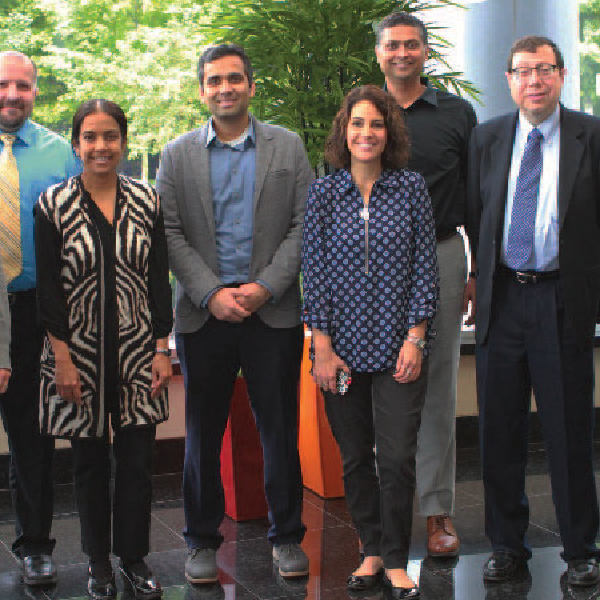Flexibility, CRO growth, and real world data: A conversation with Kelly J. Hill

Executives come and go, but strong leaders like Kelly J. Hill, help shape an organization and its future. As Executive Director, Global Business Operations & Strategy at MMS, Kelly discusses how thoughtful planning, strong values, and a company focus on data showcase MMS as an emerging leader of specialized CROs in this expert Q&A.
Why do you think sponsors stay with MMS?
We have been purposeful in our business model and it has been simple from the onset – we take on the work we know we do well and we invest in long-term relationships. We know the strengths of our organization and how these strengths fit with the needs of our clients. Our clients seem to appreciate this and know that when we kick off a project we will offer them exceptional services. Frankly, if we see a better way to get them from Point A to Point B – even if this may negatively impact our bottom line in the short term – we will recommend an alternative approach.
The second component, and a differentiator for our organization, is our focus on relationships. There are some advantages to being a privately held company, one of which is the ability to work with the long view in mind. I believe that when we take the time to understand what is most important for each client, it will translate into a more client-centered, thoughtful operational plan. Plans like this tend to stand the ups and downs of their portfolios.
A clear example of this approach was a discussion we had just this week. We met with a sponsor looking to initiate a phase 3 program. The discussion covered all necessary elements, including protocol development, database build, analysis planning, and more, but our functional line leads take it one step further, highlighting how to execute this work in a way that ensures the most efficient path to a high quality and timely new drug application (NDA).
A sponsor’s goals are not a dataset alone or a final summary document. Their ultimate goal, to reach patients with a new treatment option, may be a few years down the road, and that is the goal we keep in mind.
What do you attribute the company’s consistent double digit year-over-year growth to?
Through the years, we have remained focused, even when so many other CROs and service providers have made significant shifts and wholesale changes to their services or corporate mission. I understand this balance is critical in any business, especially in the CRO space. There will always be the need to evolve, creating smarter and more efficient ways to operate.
However, it appears that too often we see organizations changing for the sake of change alone. When they do this they lose ground and, instead of the intended gains, they leave behind what they have been doing well.
Pressures to revisit organizational strategies within our industry come too frequently, and I think this common approach is a mistake. The executive team at MMS has been intentional, making changes where needed, but also protecting and building up those areas where we excel. I think greater rewards come from smart adjustments and demonstrating steady progress, versus major shifts in direction just to match what others are doing.
How do you inspire employees to consistently stay at the top of their game?
If I may, I think I would flip this around and share all the ways that I have been inspired by the colleagues who I work with at MMS. Every day, I see the dedication of our project teams to not only meet, but exceed, the expectations of their internal customers and those of our clients.
It’s remarkable to see how our colleagues integrate our company values into the ways they work, including striving for good science and bringing a sense of urgency and leadership (SOUL). One of the advantages of my position is the daily interaction that I have with many of our client partners. I am in the position to hear their feedback first hand and it is overwhelmingly positive.
I will often receive a spontaneous call from our sponsor, sharing a genuine “thanks” for the work performed by our staff. Similarly, I also see these contributions for myself, in the high level of energy in our offices and the way this extends to the communities we live in. Whether at our offices in Canton, Michigan or Bangalore, India, for instance, I am encouraged by the volunteer hours and the contributions that our teams make to health-related or other important community initiatives. It’s their work that inspires me and the others around them.
What interests you the most for the future of pharmaceuticals?
I have been in the pharmaceutical industry for more than 20 years, and at this point in time – more so than others – we are experiencing a unique set of pressures. The first pressure is toward clinical trial data transparency. This is the result of both regulatory change and public pressure for pharma, biotech, and all clinical researchers to share results and in some cases the exchange of clinical trial level data. This is not easy to accomplish and, as an industry, we need to find ways to do this more efficiently, including making changes to upstream processes and ensuring throughout that we are offering the highest level of data protection to clinical trial participants.
The second pressure the industry is facing is the integration of real world evidence (RWE) into our development programs, decision-making , and safety surveillance activities. This pressure comes from the unprecedented access to staggering amounts of health-related data, including non-traditional sources like social media, registry databases, Electronic Health Records (EHRs), and the Internet of Things (IoT), among others.
The industry is responding to this challenge by creating specialized roles, processes, and strategies to best utilize this data. MMS has responded in a similar way with the introduction of our data sciences services, which are focused on the methods and best practices for the use of RWE.
With this evolution, there is now the need to consider the randomized controlled clinical trial in the context of many other real world data sources. This is an exciting time for our industry, and frankly an imperative and ethical obligation for researchers to maximize and use the data already available, to focus on defining the ways to understand the patient experience and extrapolate health outcomes beyond the short view of the clinical trial.











